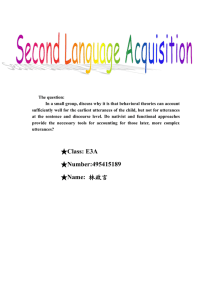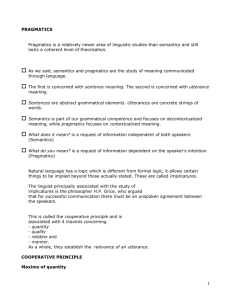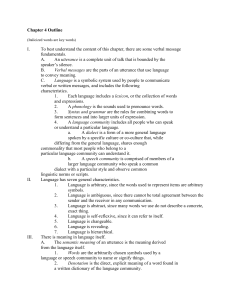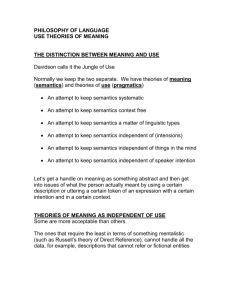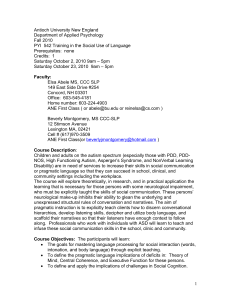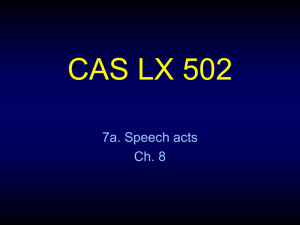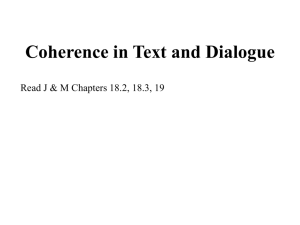Drawing the Line between Meaning and Implicature
advertisement
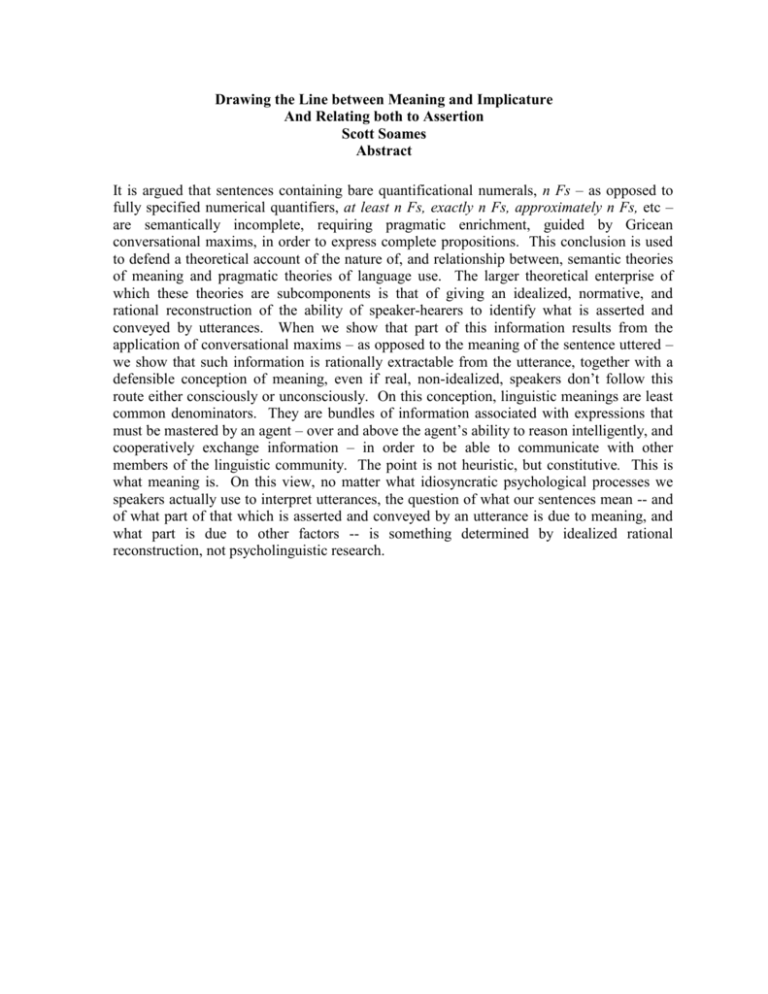
Drawing the Line between Meaning and Implicature And Relating both to Assertion Scott Soames Abstract It is argued that sentences containing bare quantificational numerals, n Fs – as opposed to fully specified numerical quantifiers, at least n Fs, exactly n Fs, approximately n Fs, etc – are semantically incomplete, requiring pragmatic enrichment, guided by Gricean conversational maxims, in order to express complete propositions. This conclusion is used to defend a theoretical account of the nature of, and relationship between, semantic theories of meaning and pragmatic theories of language use. The larger theoretical enterprise of which these theories are subcomponents is that of giving an idealized, normative, and rational reconstruction of the ability of speaker-hearers to identify what is asserted and conveyed by utterances. When we show that part of this information results from the application of conversational maxims – as opposed to the meaning of the sentence uttered – we show that such information is rationally extractable from the utterance, together with a defensible conception of meaning, even if real, non-idealized, speakers don’t follow this route either consciously or unconsciously. On this conception, linguistic meanings are least common denominators. They are bundles of information associated with expressions that must be mastered by an agent – over and above the agent’s ability to reason intelligently, and cooperatively exchange information – in order to be able to communicate with other members of the linguistic community. The point is not heuristic, but constitutive. This is what meaning is. On this view, no matter what idiosyncratic psychological processes we speakers actually use to interpret utterances, the question of what our sentences mean -- and of what part of that which is asserted and conveyed by an utterance is due to meaning, and what part is due to other factors -- is something determined by idealized rational reconstruction, not psycholinguistic research.

